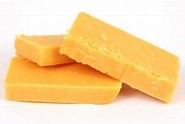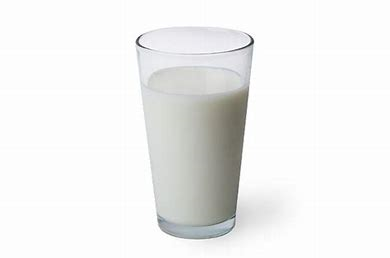Written by Sarah Smith from Bayside Dietetics
When it comes to health, we often think of flashy trends and miracle cures. But sometimes, the most important things are a bit quieter—and bone health is one of them. As much as we love reading about the latest wellness fads, the truth is that looking after our bones is essential at some of the most important times in our lives: during childhood, pregnancy, and breastfeeding.
Did you know that an estimated 90% of adult women and 70% of kids aren’t getting enough calcium—the key nutrient that our body needs to build strong bones? If you’re reading this, there’s a good chance that you, or someone you care about, could use a calcium check. Don’t worry, we’ve got you covered—let’s make it quick and simple.
Why Bone Health is Essential
Did you know that our bones are constantly renewing themselves? In fact, every ten years, your body completely replaces its bone structure. This renewal process is vital for keeping bones strong throughout your life. The foundation for that strength begins in childhood and early adulthood, which is why getting enough calcium at these stages is crucial.
Additionally, during pregnancy and breastfeeding, your calcium needs are higher, as your body supports the development of your baby’s bones and provides nutrients for breastfeeding. Without enough calcium, these critical periods could be compromised, leading to weaker bones later in life.
Bone health isn’t just about avoiding fractures—it’s about preventing osteoporosis and ensuring that your body remains strong as you age. And the best part? It all starts with a little nutritional awareness.
The Science Behind Calcium
Your adult body contains about 2% calcium, mostly stored in your bones. To put it into perspective, that’s around 1.4kg of calcium in a 70kg body! This mineral is a building block for bone density, but it’s also essential for muscle function, nerve transmission, and even blood clotting.
The most effective way to get calcium into your body is through food—ideally from natural, whole foods, not supplements. Dairy products like yogurt, milk, cheese, and even ice cream are great sources of calcium. Additionally, there are some plant-based options like calcium-fortified soy drinks and leafy greens. But let’s face it—those other foods are supplementary sources, so it’s best to focus on getting enough of the main players.
How Much Calcium Do We Need?
Calcium needs vary by age group, and it’s important to meet those requirements through your diet. Let’s break it down for the entire family:
-
2-3 Year Old Kids: 1 ½ serves of calcium daily. A small tub of yogurt and a slice of cheese can do the trick.
-
4-8 Year Old Kids: 2 serves of calcium daily. Think milk on cereal for breakfast and yogurt as a snack.
-
9-11 Year Old Kids: 3 serves daily. For example, 2 slices of cheese on toast in the morning, a tub of yogurt for a snack, and a smoothie after school.
-
Older Kids: 3 ½ serves per day. This can be achieved by incorporating calcium into two meals and two snacks throughout the day.
-
Adults (including pregnant or breastfeeding women): 2 ½ serves daily. A typical day might include milk on oats for breakfast, a yogurt snack, and some feta cheese in a lunch sandwich or salad.
Examples of Calcium-Rich Servings:
-
2 slices (40g) of cheese
-
1/2 cup (120g) ricotta cheese
-
1 cup (250ml) of milk
-
¾ cup (200g) yogurt

What Are Your Calcium Levels? Can You Get Them Checked?
The simple answer is: no, you can’t directly measure your calcium levels in your blood to check bone health. Calcium levels in your blood aren’t reflective of the calcium in your bones. However, there are more accurate methods to check bone health, such as bone density scans. But these tests are expensive, time-consuming, and generally not recommended unless you have concerns.
If you’re unsure about your bone health, a visit to your GP is a good idea. Your doctor can help you assess your risk for bone health issues, especially if you’re in a high-risk group such as older adults, pregnant women, or people with certain medical conditions.

The Role of Supplements: Are They Necessary?
If you’re struggling to get enough calcium from food alone, supplements can serve as a backup option. However, it’s important to note that calcium from food is more bioavailable—meaning your body absorbs it better—than the calcium in supplements. Think of it like this: taking a supplement is like getting a similar taste to chocolate by chewing cacao beans. It’s a similar concept but not quite the same experience.
Calcium supplements are useful in certain situations, particularly for those who can’t manage their calcium intake through food, such as those with lactose intolerance, vegans, or individuals with certain dietary restrictions. However, supplements should never replace a healthy diet.
Innovations in Calcium Intake: Plant-Based and Eco-Friendly Options
In today’s world, the variety of calcium-rich foods has expanded significantly. For example, many plant-based milk alternatives like almond, oat, and rice milk are now fortified with calcium. These alternatives are not only great for those who avoid dairy but are often more sustainable options compared to traditional dairy farming.
The growing interest in plant-based diets has led to a surge in calcium-fortified products, making it easier for everyone to meet their calcium needs, no matter their dietary preferences. Consider adding fortified snacks, leafy greens like kale, and even canned pink salmon with bones (a surprisingly great source of calcium) into your routine.

Exercise and Bone Health: Not Just About Calcium
While calcium is essential for strong bones, it’s not the only factor at play. Physical activity—particularly weight-bearing exercises like walking, running, or dancing—can help stimulate bone growth and increase bone density. It’s also essential for keeping muscles strong, which further protects bones from fractures.
And don’t forget the importance of sunlight! Vitamin D, which is produced when your skin is exposed to the sun, helps your body absorb calcium more effectively. So, get outside, get active, and make sure your bones are reaping the benefits.
How Can You Support Your Family’s Bone Health?
Here are some practical, fun, and easy ways to ensure that your family gets enough calcium:
-
Create Bone-Friendly Meals: Start the day with calcium-rich foods, like oatmeal topped with milk and chia seeds, or scrambled eggs with cheese.
-
Sneak Calcium into Snacks: Try making homemade smoothies with spinach, yogurt, and calcium-fortified milk or snack on a piece of cheese and some almonds.
-
Get the Kids Involved: Let children help make bone-boosting meals like homemade pizzas with lots of cheese or calcium-fortified smoothies.
-
Use Calcium Supplements When Necessary: If your diet isn’t enough, talk to your GP about safe supplement options, especially if you’re breastfeeding or pregnant.
Conclusion: Bone Health Starts Now
Bone health is vital for everyone, from infants to adults, and the best time to start is now. By focusing on nutrient-rich, whole foods, getting active, and making small changes to your daily routine, you’ll be on your way to building and maintaining strong, healthy bones. And remember, if you ever have concerns or questions, your GP can be a great resource to guide you in the right direction.
You may also like to read:
Checklist to Eat Out Safely With Food Allergies









